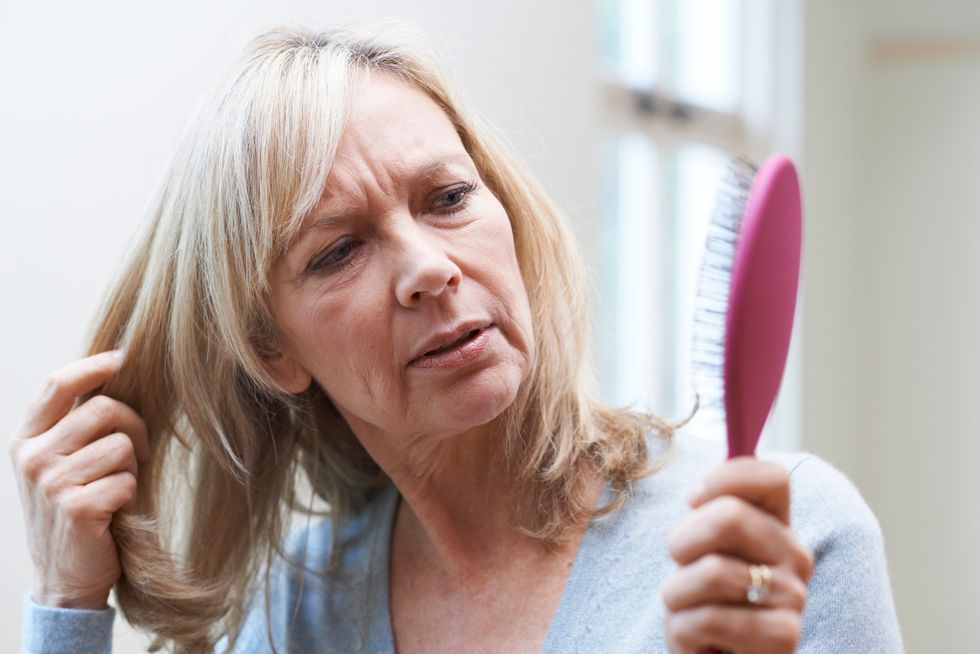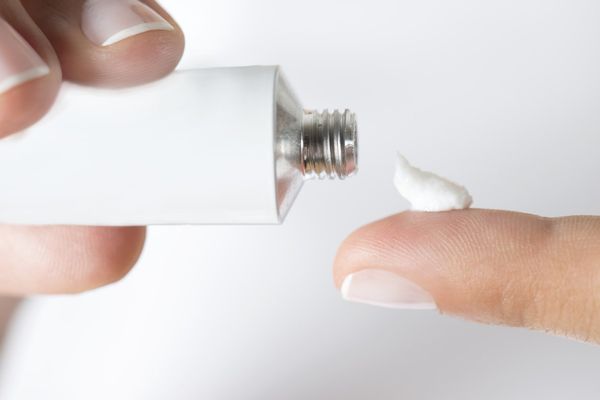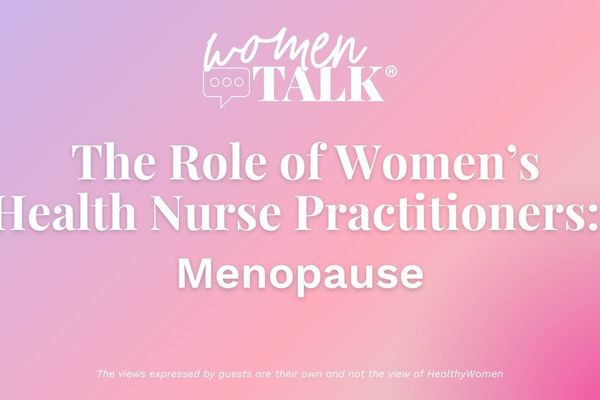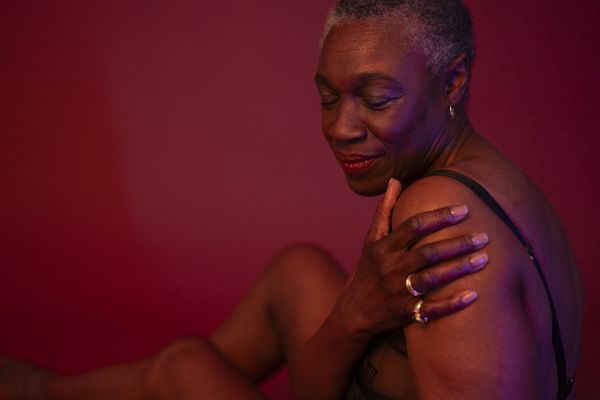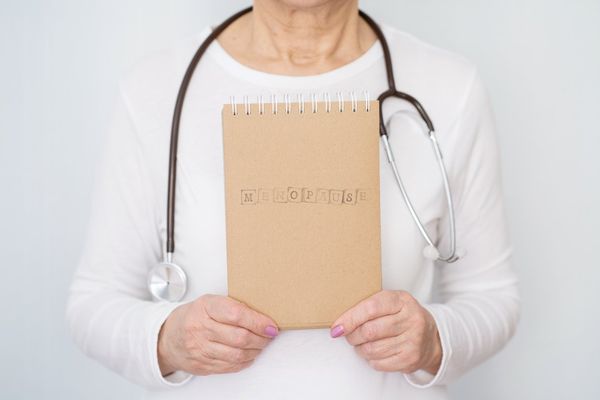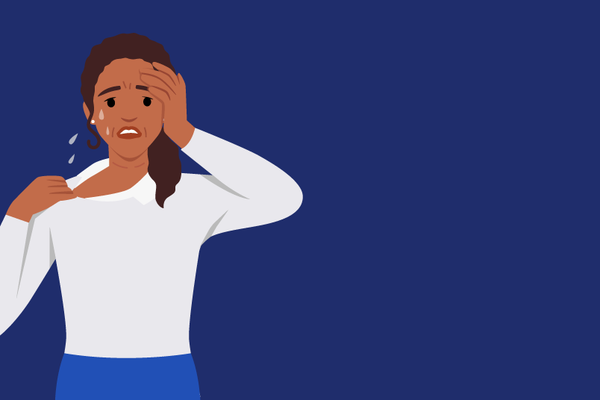My hair used to be so much thicker and fuller. When I look in the mirror, I can actually see my scalp.
What's up with that??? Says I, and most of my friends and many women around my age, who beg me to research and write about this topic. I'm no expert, although I must admit that necessity has almost forced me to be. My hair used to be so thick that I could barely wrap a rubber band around it. Not so much anymore.
Two things I've personally researched: clip-in extensions and biotin supplements. The first, I've occasionally played around with and the second I haven't. That's because clip-in extensions are a fast, safe and easy way to temporarily boost the volume of your hair. There are many brands around and although I have only tried one, I've found that these, by Luxy, are great quality. (I ordered a color closest to mine, then brought them to my hairdresser who dyed them to match my color, then cut them to match the length of my own hair. If you have gray hair, you may have to look elsewhere—Luxy doesn't offer gray extensions.)
And although I know a lot of people who swear by biotin supplements, I haven't tried this B vitamin (B7) because my research has told me that it only works if you have a biotin deficiency, which is quite rare. (Current recommendations for supplementing with biotin are for people with deficiencies and women who are pregnant or breastfeeding.)
So why is your hair changing—and not for the better? Age and menopause are two reasons. We may not miss getting our periods each month or the PMS and associated drama, but we sure do miss our former heads of hair.
It can be confusing. As you age, your hair generally thins and your hairline recedes. Just about 50 percent of women experience some degree of it before age 50. Hair strands become smaller. They also have less pigment. The fallout? Thin, fine and light-colored hair. And it's not your imagination that you can see straight through to your scalp: your hair has become less dense.
Although the leading cause of hair loss is genetics, so many women complain about it around the time of menopause that there must be a connection.
"Any time a woman's hormones change, their whole body will change—including their hair," says hair colorist and stylist Kali Ferrara of the Roy Teeluck Salon in New York City. For instance, at puberty, a girl's hair texture may change from straight to wavy. And during pregnancy, hair becomes thicker and grows faster, she says.
"Unfortunately, at menopause, many women notice a drier texture as well as some thinning. Most of this is caused by the lack of estrogen and collagen in their bodies, which causes most everything to dry out and to become less elastic." Lower estrogen can lead to something that mimics male pattern baldness (thinning at the temples and throughout the top of the head), she adds.
Add to that the presence of gray hair, which often grows in coarse and wiry, and can add to the hair's dryness.
I took this opportunity to ask Ferrara some other pressing questions that we all have when it comes to our hair:
Q. Is aging hair more fragile and less resilient?
A. In order for the hair strand to be well-moisturized and strong, it needs oil from the hair follicle it grows from … but during menopause those follicles produce less oils. This accounts for fragile and more brittle nature of aging hair.
Q. In what other ways do the hairs actually change?
A. The older we get, the smaller the follicle becomes, which leads to finer hairs and a slow- down in growth. In fact, sometimes growth stops altogether because of the weakened efficiency of the hair follicle.
Q. Are these changes worse for women who process their hair with color, perms, keratin treatments, etc.?
A. Everything in moderation is key. Many mainstream salon hair colors not only give pigment to your grays, but also nourish them with humectants and other conditioners. Highlights, when done properly, will not damage your hair. The same goes for keratin treatments. My best advice is to work with a good colorist who will take great care in dealing with your more-fragile hair.
Q. How often should we color our hair?
A. Color your hair every four weeks, and limit highlights to once every two months. The less stress you put on the hair, the better.
Q. What are some other ways to baby our hair?
A. Stay away from products that contain sulfates or parabens. Generally, products sold in hair salons are of higher quality than those from the drug store. Although they may have the same active ingredients, some lower-end products contain waxy fillers which can clog your hair follicles.
Also, limiting the frequency of shampooing is hugely beneficial. But if you can't go without wetting your hair, try just rinsing and conditioning and skip the shampoo.
A weekly mask or deep-conditioning treatment is always good, no matter what your age, and can infuse your hair with moisture and protein that it may be lacking. Some women will shy away from these because they feel it compromises their hair volume, but I think that a weekly mask is especially important because your hair doesn't get the nourishment it needs with just regular shampoos.
Currently, the only over-the-counter medication approved by the FDA for female pattern hair loss is minoxidil [sold generically and under the brand names Rogaine or Theroxidil].
Female pattern hair loss is hereditary and more common after menopause and the most common cause of progressive hair loss in women. Its hallmarks: Thinning hair mainly on the top and crown of the scalp, which is usually first evident as a widening through the center hair part. Your hair may also begin to recede near your temples.
Other treatments include at-home lasers and platelet-rich therapy (where platelets from your own blood are treated, then injected into your scalp), and several "off-label" medicines (approved to treat other medical conditions) including Aldactone and Tagamet.

